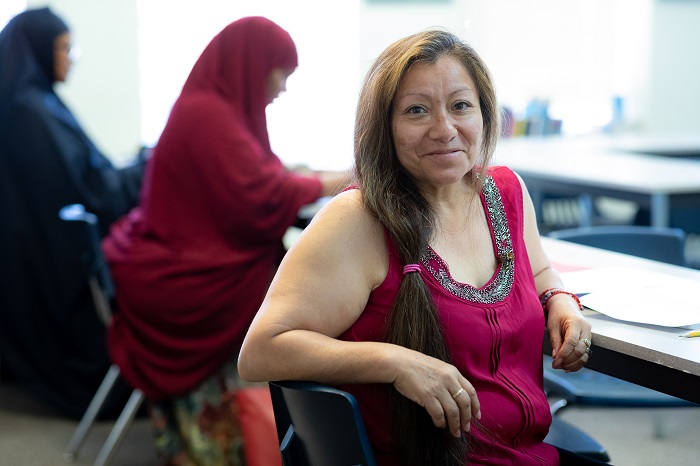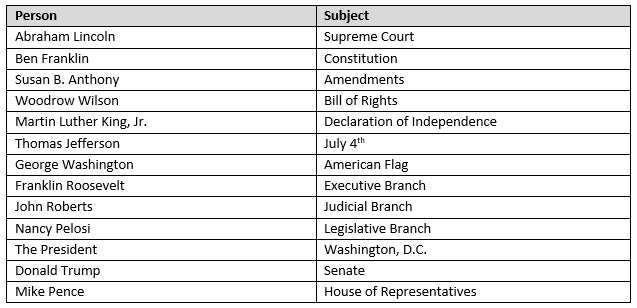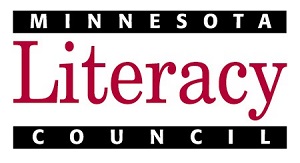- MN ABE Connect
- Archive
- Citizenship Instructional Support Kit
 November 25, 2019
November 25, 2019
Citizenship Instructional Support Kit
Andrea Echelberger, ESL Training CoordinatorUnder a new proposal put forward by the current administration, the cost of applying for U.S. citizenship will increase from $640 to $1170, an increase of 61%. If this proposal passes, many agencies that work with immigrants are anticipating a surge in citizenship applications as green card holders attempt to file their paperwork before the fee increase is implemented. Learning centers and schools may see a sharp increase in the number of adult learners and community members who are looking for citizenship classes and tutoring over the next few months.
For teachers and tutors who are interested in working one-on-one or with small groups of learners to prepare them for the citizenship test, the Citizenship Instructional Support Kit from the Minnesota Literacy Council contains a number of ready-to-use materials and activities. You can find the downloadable kit at http://mnliteracy.org/tools/ESLKits. Check out the sample activities below!
Also find free, up-to-date citizenship resources on the USCIS website: https://www.uscis.gov/citizenship
100 Questions: Listening for Key Words
This activity is good for reviewing the 100 questions by identifying the key words. It builds learners’ confidence as they realize that they do not need to hear all of the words in the question to recognize it (remind learner/s that during the real test, they are allowed to ask for clarification if they do not understand a question) and also helps to develop their listening skills.
Materials Needed: 100 Civics Questions flashcards
- Select a 100 question flashcard and identify the key words in the question.
- Say the key words to the learner/s. Encourage them to guess at the answer if they are not sure.
- After the learner/s respond, tell them if they answered it correctly. If they were correct, read the entire question to them. If they were incorrect, re-read the key words and encourage them to guess again.
Example:
Why…flag…50…stars?
Who…first…president?
What…judicial…do?
Name…problem…Civil War.
What…ocean…west?
Expansion: Have the learner/s draw several question cards. Tell them to look at the questions and decide which words are the most important. Have them ask the tutor or each other the questions using only the key words.
Activity adapted from the Miami-Dade County Public Schools: Handbook for Citizenship Teachers
http://adultesolprogram.dadeschools.net/pdfs/Citizenship_Teachers-handbook_10.pdf
100 Questions: Tell Me About…
If learners memorize the 100 questions by rote, they can become flustered if the interviewer varies the wording of the questions. This activity is a review technique for learners who have taken a citizenship class. Summarizing the information about the topics that are covered in the questions helps the learners to cement their knowledge of the background information and to build confidence.
Materials Needed: none
- Select a subject or a person from the lists below.
- Ask the learner/s to tell you as much as they can about the topic. Prompt as needed.
- If the learner/s struggle to talk about a topic, encourage them to study up on it before you meet the next time.
Example:
“Tell me about the Civil War.” “Tell me about the American Flag.” “Tell me about Susan B. Anthony.”

Activity adapted from the Miami-Dade County Public Schools: Handbook for Citizenship Teachers
http://adultesolprogram.dadeschools.net/pdfs/Citizenship_Teachers-handbook_10.pdf
N-400 Form: Correcting Mistakes
This activity helps to build learners familiarity with the information on the N-400 form and gives them practice correcting errors during an interview.
Materials Needed: a copy of the learner/s’ N-400 form (ask learner or classroom teacher to make you a copy)
- Look over the learner/s’ N-400 form.
- Ask them questions off of the form, changing the information slightly so that it is incorrect.
- Have the learner/s respond with a polite correction.
- Ask some questions correctly and some incorrectly so that the learner has to focus on the questions.
Example:
“Your name is spelled M-O-H-A-M-M-E-D?” “No, my name is spelled “M-O-H-A-M-E-D.”
“You were married in 2009?” “No, I was married in 2011.”
N-400 Form: Asking for Clarification
During the interview, it is extremely important that learners do not answer questions about their N-400 form incorrectly. If they do not understand the interviewer, they should ask for clarification and make sure that they fully understand the question before responding. This language negotiation skill is important to practice.
Materials Needed: N-400 form, mini-whiteboard, marker
- Working together with the learner/s, generate a list of phrases that can be used to politely ask for clarification if they don’t understand the interviewer (e.g. Can you repeat that, please?” “Could you please say that again?” “I’m sorry, I didn’t understand the question. Could you say it again?”)
- Write the phrases down on a mini-whiteboard so that the learner/s can see them.
- Read through the phrases together.
- Ask a question from the personal information section of the N-400 form (parts 1-11). As you ask the question, deliberately change around the word order, mumble, or drop key words from the question to make it difficult to understand.
- Have the learner/s use one of the clarification phrases to have you repeat the question.
Example:
“Color what hair?” “Excuse me, could you repeat the question?” “Of course. What color is your hair?” “Brown.”
Expansion: Repeat this activity with questions from Part 12 of the N-400 form.

Newsletter Signup
Get MN ABE Connect—the official source for ABE events, activities, and resources!
Sign UpArticle Categories
- ABE Foundations/Staff Onboarding
- ACES/Transitions
- Adult Career Pathways
- Assessment
- CCR Standards
- Citizenship
- COVID-19
- Cultural Competency
- Digital Literacy/Northstar
- Disabilities
- Distance Learning/Education
- ELA
- Equity/Inclusion
- ESL
- HSE/Adult Diploma
- Listening
- Math/Numeracy
- Mental Health
- Minnesota ABE
- One-Room Schoolhouse/Multilevel
- Professional Development
- Program Management
- Reading
- Remote Instruction
- Science
- Social Studies
- Speaking/Conversation
- Support Services
- Teaching Strategies
- Technology
- Uncategorized
- Volunteers/Tutors
- Writing